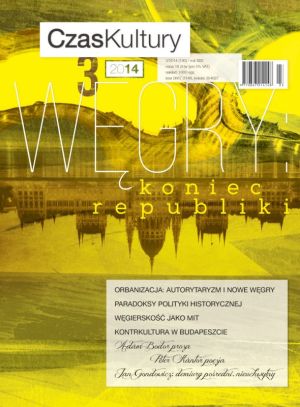
We kindly inform you that, as long as the subject affiliation of our 300.000+ articles is in progress, you might get unsufficient or no results on your third level or second level search. In this case, please broaden your search criteria.

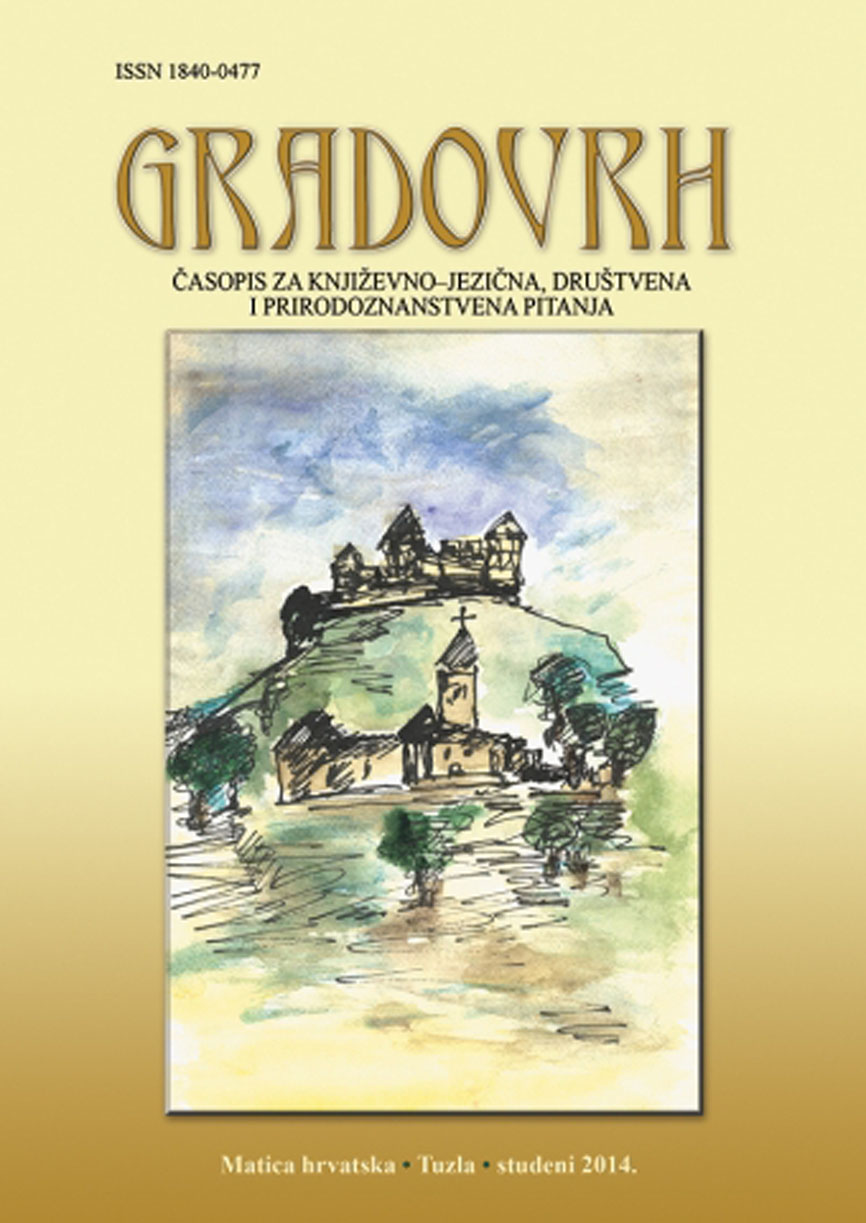

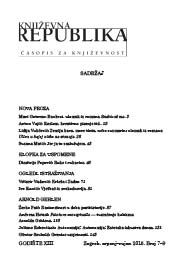

Kuća je svakako bila boje cimeta. Ili je ipak bila boje sepije, povremeno i okera. A nije li ih jednog ljeta, više se Agnes Voznesensky ne sjeća koja je to bila godina, dočekala u novoj odori, boji višnje? Djed koji je bio tvrd na paru odriješio je kesu i svoju veliku kuću u obliku slova L koja je obujmljivala nisku od dvanaest soba i avlijsku kuhinju, a bila je dugačka samo u jednoj ulici četrdeset a u drugoj dvadeset i pet metara, svoju je veliku prizemnicu dao obojadisati u tu za ondašnje vrijeme kraja šezedesetih, neuobičajenu boju.
More...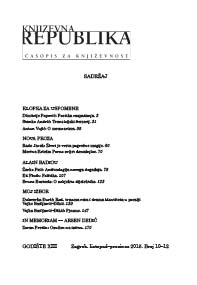
Siniša Baltus, agent za vezu jugoslavenske SDB, našao se s Borom Konjem u Stuttgartu na Charlottenplatzu. U deset i trideset ujutro sjeli su na terasu restorana nedaleko ceste kojom je tekao bučni gradski promet. — Kako si? — Guram nekako. Kolotečina, braco. Dani mi prolaze sporo, a godine brzo… Ustvari, često razmišljam o smrti. — Zašto, braco? — Lijepo je misliti na smrt. — Smrt je tvoj posao.
More...
Roman poput ovog piše se noću. Posljednjih dana razmišljala sam zašto mi inspiracija ne dolazi danju. Zato što su stvari o kojima pišem uglavnom noćne. Noć je u najvećim svjetskim metropolama dinamična poput dana, jednako produktivna, iako se izbor noćnih i dnevnih aktivnosti razlikuje. Danju se obavlja posao i sve nužne stvari. Noću pak dolazi vrijeme za opuštanje i zabavu, u onoj mjeri u kojoj si ih je čovjek u stanju priuštiti. Noću se ljudi pretvaraju u lovce, čineći mnogo toga kako bi zadovoljili svoje hedonističke potrebe.
More...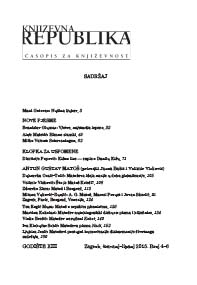
Jaki, tako Nuša od milja zove svoga šarmantnog supruga, osvajača brojnih žena, pa tako i nje same. Upisala je Nuša glumu na Akademiji u Zagrebu 1964. godine. Unatoč tatinoj želji da upiše medicinu i maminoj molećivoj jadikovki da studira povijest umjetnosti. Moji adolescentski hormoni i strasna potreba za takozvanim samostalnim donošenjem odluka, vode me isključivo onome što sam sama izabrala. A to je gluma. Bit ću glumica. Bit ću prvakinja. Bit ću slavna. Nemam pojma što to zapravo znači biti glumica, i nije me briga. Živim u Zagrebu u djevojačkoj sobici do koje se dolazi preko gazdaričine kuhinje. Soba se sastoji točno i nepogrešivo samo od mog kreveta. Spisi i knjige za fakultet naslagane su na zidiću ispod uskog i dugog prozora koji je iznad kreveta.
More...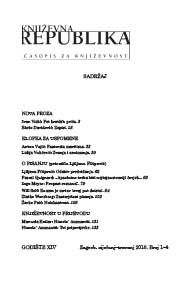
STANJE NACIJE SAKUPLJANJE KIŠNICE RUDARSKI KANARINAC LJUBAV U PARKU ČVARCI I PIVO
More...
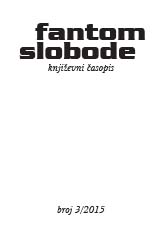
Našli su se u Airbnb stanu. Iznajmio ga je na jednu noć. Na stolu je čekala flaša žestine i uredno podeljeni lajnovi koke. Dobro je — pomislila je. Veoma često oseća snažno gađenje prema golim telima, svom takođe. Ovladavanje gađenjem. Sve po redu. Ušmrkala je koku sa stola. On joj je prišao od pozadi i počeo da joj skida suknju i najlonke.
More...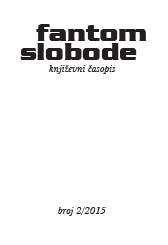
— Isuse, stara, pa nećeš valjda izać’ van u tom rozom odijelu, kak su ti odurne te crvene štikle, pa kaj si to s ustima napravila, izgledaš ko stara ofucana plavuša s Harvarda il’ k’o kurva, kaj je tebi? — Budi pristojan, Kosta! Nije to odijelo, nego kostim. Ne mogu se ja oblačiti kao one tvoje cure, u indijske haljine s trakama oko glave. Osim toga žena mora paziti kako izgleda ako želi postići život.
More...
Prizor preda mnom odjednom je puknuo, kao da je bio snimljen na nekoj vrpci koju je nešto prerezalo. Sve se zacrnilo i odmah postalo bijelo. Ono što ponovno vidim počinje iz mraka i iz svjetla. Sjedim za stolom ispred nekog konačišta, uz pustu cestu, na rubu šume. Čini se da smo sada negdje drugdje, jer ovdje opet osjećam bol. Čujem rzanje konja i lupanje po nečemu što je istovremeno meso i staklo. Djed mi učvršćuje glavu i udara po njoj čekićem. Najprije lagano, onda sve jače. Pokušava otkinuti kamen s moga tjemena. To je prva slika u mome sjećanju, vjerojatno lažna. Dok djed lupa čekićem, cijeli svijet pada u moje oči iz velike visine, golem, krvav i bijel.
More...
Zovu me Eliakim i ako sve svedemo na proste faktore, dobijemo sljedeću jednadžbu: Nasilno smo ejakulirani u život, nismo imali izbora. I nakon prve ejakulacije slijedi niz drugih, jednako nasilnih. Vrišteći izađemo iz maternice nakon žestokih mišićnih kontrakcija, to je tek početak. Iz vrtića nas katapultiraju u školu, iz škola na fakultet, a iz fakulteta u život. Najstrašnije kod života su izbori, bezbroj mogućnosti koji svaki dan nudi. Nasilno sam ejakuliran u nesiguran okoliš. Otkud našim roditeljima ideja da smiju iščupati dušu iz preslatkog crnila u ovu luđačku nakupinu mesa i buke?
More...
Konačno, opuštajuće piće nakon dugog radnog tjedna. Lijepo je misliti da je tako, ali nije. On si svaki dan priušti opuštajuće piće, svaki dan je kraj radnog tjedna, ali mali je problem u tome što je svaki dan i njegov početak. To su ta slobodna zanimanja, nema sigurnosti, sve što si gradio može propasti već sutra ako se promijeni politička situacija ili ako netko tko odlučuje o tvojoj sudbini, a možda ni ne zna da odlučuje o tvojoj sudbini ili mu barem nije stalo, dakle ako taj netko ima loš dan ili ekonomsko opravdanje, jer, zna se, novac je bog, zakoni tržišta su nedodirljivi i ne propituju se, ono što ne donosi profit treba ugasiti, zatrti, odmah, sada, isti čas.
More...
Пећина, чији је улаз слијева обрастао жбуњем, а сдесна се виде голе стијене. Унутрашност пећине је тамна. Пред њом је старо стабло неког дрвета које је настрадало од неке буре. Из таме пећине излази човјек - Марко Краљевић. Лице му је дремљиво и са шубаром на глави. На њему је некаква рогозина (можда медвјеђа кожа), а десном руком се поду пире неким дугим штапом. То је мјесто гдје се Марко крије од људи више од шес то година. Сада је одлучио да изађе напоље, тек да види шта је са свијетом.
More...
Откако угледа обнажену дјевојку, Филип жарко пожели да се замомчи. Присјећао се моба и прела, на којима су људи крунили кукуруз а жене обав- љале своје ручне радове. Неко тада рече како прва деценија живота никада да прође, док свака наредна иде све брже и брже. Баш је тај човјек у праву, често је размишљао Филип. Бројао је године а оне као да су се враћале уна- зад. Чисто је завидио Богољубовој осамнаестој години у којој се ожени и за непуне двије године доби сина и ћерку.
More...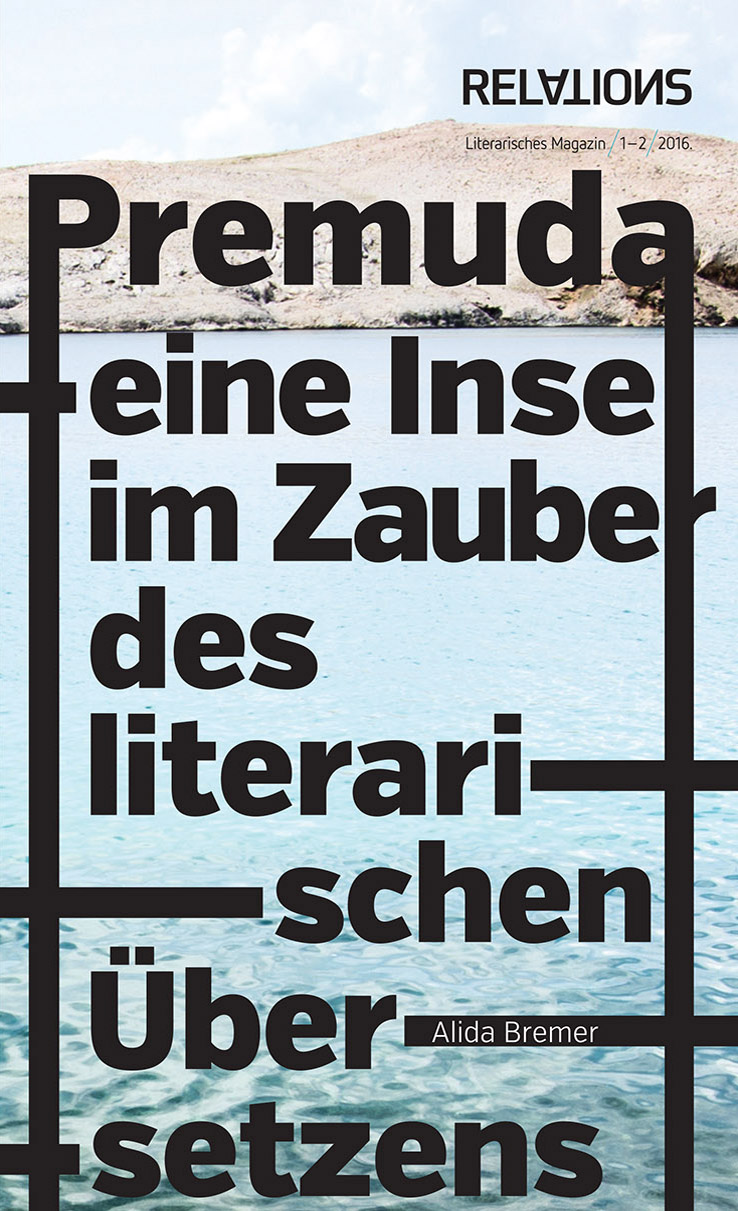
Sie nennen ihn Traktor. Nichts von dem, was er sieht oder hört, dringt zu ihm durch. Manchmal wacht er nachts auf und dann würde er am liebsten aus dem Haus gehen, in den Wald und verschwinden. Kurz gesagt, er ist verhaltensgestört und nimmt Tabletten.
More...
Sie liebte es, Plastikkinder zu beobachten. Gesehen hatte sie schon Hunderte, und manchmal träumte sie auch von ihnen. In ihren Träumen erwachten sie: sie lachten, rannten, weinten... Oder sie klimperten mit den Augen. Sie sah schwarze Jungen und Mädchen in grellgelben und hellgrünen Regenmänteln; kleine, anämische Hockeyspieler mit Kunststoffhockeyschlägern und Schlittschuhen. Ihre Trikots waren gelb, in der Farbe der schwedischen Nationalmannschaft, die Helme auf ihren Köpfen auch. Die Helme waren ihnen zu groß, und ihre Gesichter lugten verschwörerisch darunter hervor. Sie erinnerten an eine eingekerkerte Kolonie ET-s, die in Glaskäfige eingeschlossen waren. Und einmal, während eines Ausflugs nach Russland, in Moskau, in einer der Straßen, die in den Roten Platz einmündeten, sah sie Dutzende kindlicher Klone gekleidet in Trikots der russischen Hockey-Nationalmannschaft. Ihre Schlittschuhe waren aus Kunstharz und sie hatten keine Helme auf den Köpfen.
More...
„Es ist keine Zeit mehr.“ Als ich sie diese Worte zum ersten Mal sagen hörte, wurden sie ganz beiläufig erwähnt, mit einem flüchtigen Blick gen Himmel, als ob jeden Moment Regen fallen könnte oder der Zeitpunkt gekommen wäre, in dem man einen bereits gefassten Plan endgültig aufgibt; genau von dieser Einstellung zeugten ihre Haltung, ihre Kleidung, ja sogar ihr Gesichtsausdruck, von einer Vernachlässigung und Lethargie, die wie in Zeitlupe auf der Schwelle unumkehrbaren Verwelkens schwankten: Nach diesem Satz rührte sich keiner, niemand sagte ein Wort, einen Augenblick lang standen halb leere Kaffeetassen und volle Aschenbecher vollkommen ruhig auf dem Tisch, als wären sie Versteinerungen einer Alltagsszene, die sich vor mehreren Jahrtausenden ereignet hatte, ein neues Herculaneum, überdeckt von einer unsichtbaren oder gänzlich durchsichtigen Masse eines anderen Vulkans und so für die Ewigkeit bewahrt, doch dieser Moment – so tief und unendlich er mir im Nachhinein auch scheint, wenn sich mein Blick wie jetzt in ihn versenkt, und so sehr er immer noch bereit ist, alles zu verschlingen, was von meinen Tagen blieb – dauerte nur eine Sekunde oder zwei: Jemand drehte sich um oder atmete aus, jemand zündete sich noch eine Zigarette an oder hob die Hand, um den Kellner zu rufen; ein sonniger Spätvormittag – der am Ende des Frühlings stets die Form einer gelbgrünen, collagenhaft gezeichneten Fläche annimmt, deren Elemente man nicht im Einzelnen ausmachen kann wie scharf umrissene Ausschnitte, sondern die sich in ein scheinbar beliebiges Getümmel verwandeln, eine Bewegung, die die Zeit, statt sie im Fluss zu halten, auf geheimnisvolle Weise zum Stehen bringt – begann sich in einen frühen Nachmittag hinzuziehen, in jenem Rhythmus, der so typisch ist für Osijek. Im Grunde genommen war überhaupt nichts passiert, zumindest kam es mir damals so vor.
More...